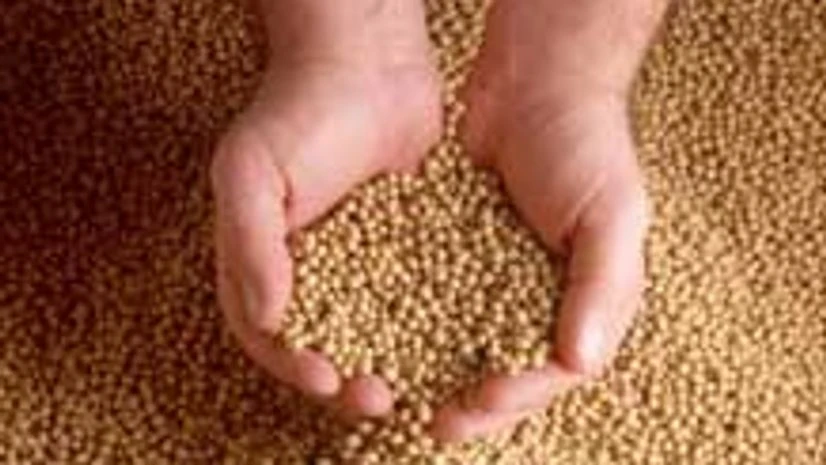Poor supply of soybeans in India will curb soymeal exports by Asia's top producer of the animal feed until at least the new bean harvest from October, despite a jump in shipments of soymeal last month.
Soymeal exports more than doubled in July from the previous month's record low, the Solvent Extractors' Association of India (SEA) said on Wednesday, as their premiums relative to South American grades shrank last month.
Exports of the feed, which typically account for about two-thirds of India's annual oilmeal exports, rose by 152 per cent to 6,635 tonnes in July from a month ago, SEA said.
More From This Section
Traders said poor availability of soybeans for crushing in local markets have made Indian soymeal more expensive in recent months than supplies from other origins, driving away buyers from West Asia, Southeast Asia and Europe India's soybean output is estimated to have dropped 4.4 per cent to 10.23 million tonnes in the 2013-14 year, as rains during the harvest damaged the crop yield.
India grows soybean once a year with its sowing taking place in June-July with the spread of annual monsoon rains to main growing areas of central and western regions. The summer crop is harvested in October.
"Our soymeals are completely out-priced globally due to poor domestic supplies," said B V Mehta, executive director of SEA.
In July, soymeal export prices eased on better crop outlook for soybean from the United States due to favourable weather conditions. India soymeal supplies were $44 per tonne cheaper at $652 a tonne than the previous month.
Currently, Indian soymeal shipments were $60-$70 a tonne costlier than South American supplies, which were available at about $530 a tonne. Last month, soymeal exports were 14-15 per cent costlier than a year ago, they added. In July, India's castormeal exports to South Korea and rice bran meal exports to Vietnam slumped, dragging down the overall oilmeal exports. Castormeal is used as an organic fertiliser while ricebran meal is used as animal feed.
India's overall oilmeal exports fell 43.1 per cent from a month ago to 115,094 tonnes, the trade body update showed.

)
